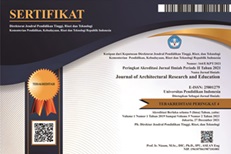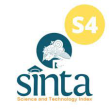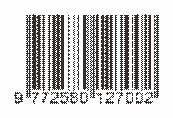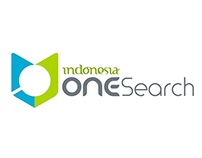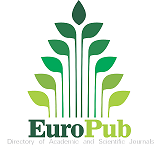CONSERVATION STRATEGIES TO MAINTAIN IDENTITY AND VALUE OF THE HERITAGE TEMPLE IN SIBANG VILLAGE (CASE STUDY: PURA DALEM DASAR, DESA SIBANG)
Abstract
As one of Balinese architectural works that have a sacred function as a place of worship for Hindus, the construction of a temple will not be separated from the local wisdom of the community. Temple is often regarded as an identity of a region, cultural heritage, and a hereditary historical heritage that manifested as an architectural work. Although considered as a historical heritage, the absence of adequate historical documentation regarding temples in Bali causes changes that often do not match the story and the initial appearance of the temple. Many factors can be said to be the cause of the temple change, e.g.: (1) the community's desire to make temple repairs practical and fast; (2) understanding of the local community who are still minimal in the rules of building a temple; (3) there are no clear rules regarding the construction of a temple; (4) people's insensitivity to their identity; and (5) the absence of adequate documentation for the process of building a temple.
Changes of a temple are also caused by government development funds, so many temples are dismantled and changed "forcefully" which unconsciously destroys the order of values and traces of the history of the temple. Temples that have historical values are instead replaced with new or contemporary models that are not necessarily based on original literature from the previous ancestral order. Seeing this phenomenon, researchers believe the need for preservation efforts through conservation strategies so that changes can be overcome and controlled according to their portion.
Keyword : conservation strategis, historical temple, identity
Full Text:
PDFDOI: https://doi.org/10.17509/jare.v1i1.16284
Refbacks
- There are currently no refbacks.
Copyright (c) 2019 Journal of Architectural Research and Education

This work is licensed under a Creative Commons Attribution-NonCommercial-ShareAlike 4.0 International License.

This work is licensed under a Creative Commons Attribution-ShareAlike 4.0 International License.


